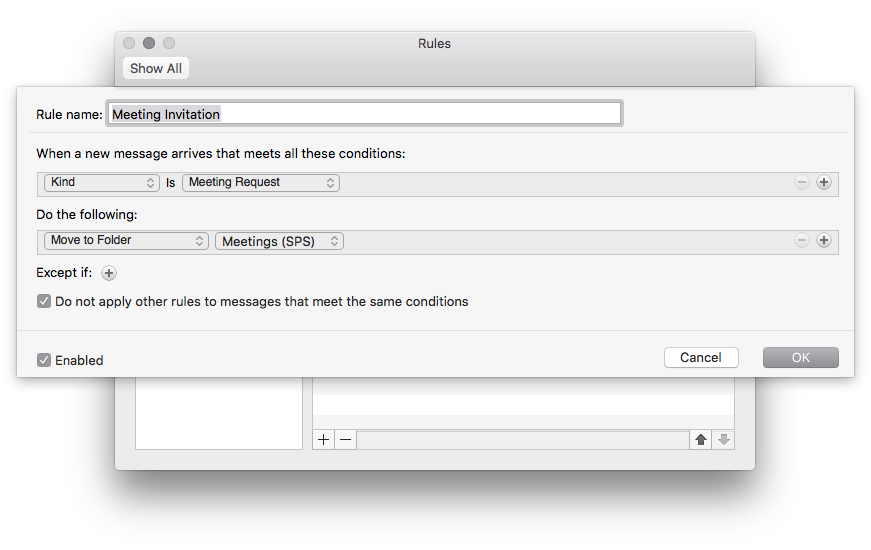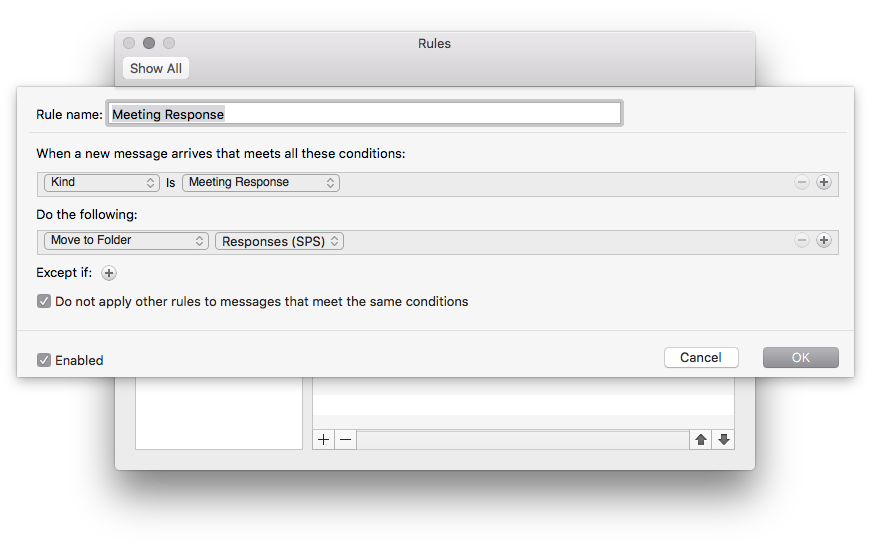Mazie values all living things -- even flys!

Mazie values all living things -- even flys!
I downloaded Vibe and gave it a run and got this fun display.
What a fun project to take the data from OmniFocus and give you some nice visuals. (Note: January is nearly zero from my regular use of "Move old data to Archive…" in OmniFocus). I’m not sure these are real actionable data points but it’s a fun start. It would be pretty amazing if OmniFocus had an API that 3rd parties could access to do some interesting visuals like this.
Simon Sinek is known widely as having one of the most watched TED Talks ever. Sinek was the final speaker at SPS Commerce's In:fluence event last week and it was fabulous. Inspiring, thought provoking and grounded in logic. Loved every minute of it!
Around 10 years ago I ran my own servers at home. I had a free-standing half-rack with several machines rack-mounted in it along with the necessary UPS and network equipment. Even a fancy KVM at one point. I ran my websites on those machines and even my own mail server. It was fun to run this stuff and my equivalent of having a garden to tend or a workbench to tinker with stuff. However, it was a lot of work and the costs of maintaining it all was too much.
Long ago I decided that running your own website was no longer something a "mere citizen" should do. Email is a massive war of spam and phishing and it's hard to do it well. I've been a happy customer of Fastmail for years now and am super happy with that.
The same trend has happened with other services. For a while I ran Fever for my own RSS system and after struggling with that shifted to Feedbin and it works great.
I got rid of the servers years ago and moved my infrastructure to VPS instances at Linode. Linode has been a great host and I really like there service. However, while the physical side of running hosts goes away maintaining a couple of Ubuntu boxes takes time and I have too little of that.
I've decided that it's time to hang up the sysadmin jacket and no longer run my own servers.
The primary reason I still host everything is to learn. I like having first hand knowledge of Ubuntu, nginx, WordPress, MediaWiki and many other systems and open-source software projects. However, at some point the act of learning goes away and you aren't getting more value out of it (at least for me). After a while you've absorbed that and now you have chores. Time to update software. Time to debug a failure. Need to restart something? All maintenance with no learning.
The reality is that there is a certain minimum amount of work needed to responsibly be connected to the Internet. You need to keep an eye on systems to make sure bad things haven't happened. You have to apply security updates. You need to upgrade your software. If you don't do these things you are running on borrowed time and will have a problem in the future that you are very poorly prepared for.
Right now I should have a task to upgrade Ubuntu 14.04 to 16.04. I'll pass.
For me this means I shift the effort and costs I've put towards running my infrastructure to service providers. I've already moved my blog to Squarespace who does an incredibly better job than I ever could running a blog. Why did I switch from WordPress? That's a different blog post.
I continue to really like Fastmail and Feedbin.
One of my favorite productivity quotes goes like:
Saying no to things lets you say yes to other things.
It's a good reminder that time is a zero sum game. I've had a lot of fun building different sites and playing with things, but you need to say goodbye to those things to say hello to other, yet to be identified, things.
One thought would be to just let them sit and not pay attention to it but I have two problems with that. First, I don't think it's responsible to just have servers connected to the web on autopilot. Second is that I experience a lot of cognitive load from things I’m not doing. Even with years of focus on GTD I’m not very good at just having something deferred or paused forever reviewing monthly. It still takes up mental energy. I want to reclaim that energy.
Over the course of the next month I’m going to be archiving and turning things down. Most of my sites are like hobby projects that very few people know exist. I'll just archive those and shut them down. There are some bigger ones that I hope someone else will decide to host instead.
After an amazing journey this week marked a major milestone for us at SPS Commerce with the biggest product launch yet on our new platform. Just a glimpse into many more things to come!
I've been a long-time user of Twitter (user #82,903 joining in December 2006) and while I've had ups and downs with the service and generally think of it as a guilty pleasure I continue to use it. However, I have always thought of Twitter as ephemeral. Tweets to me are very different than blog posts. They often do not stand on their own but are really meant to be understood in the context of the moment.
Many years ago, before the Twitter API introduced OAuth requirements I used to run a script on one of my machines that would delete tweets after a while. This became annoying to manage after the API changed and I stopped running it.
Now there is TweetDelete! I found this service via another user and it does exactly what my script used to. You authenticate the service, tell it how long you want your tweets to live, and then they delete them after that period of time. I set 90 days for mine. TweetDelete is free and is a service from Memset. I did check the TweetDelete privacy policy and terms of service and was pleased to find this clarification in the terms:
We never store any of your tweets on our servers, we only delete them on your behalf.
How terrible would it be if a service like this actually archived the tweets and then sold it for advertising purposes to 3rd parties. Terrible, and in the modern Internet it would be completely unsurprising so I was glad to see this stated clearly in their very human readable terms of service.
But what about archiving? While I do view my Tweets as ephemeral I do keep them for myself. I see little to no value for others in what I tweeted 10 years ago, but I do like to have a diary like record for myself. That is where Pinboard comes in! Pinboard has always had a feature that archives the tweets of up to 3 accounts and I've had that on for several years so I still have a personal archive of everything which I like. By the way, it's an archive I pay for and know isn't shared with others. I love the ethos of Pinboard!
I would encourage you to ask if there is a reason you want your old tweets around and if not have Tweet Delete take care of it for you. Think of it as helping poor Twitter not have to keep so much data around.
 We visited Monticello today to see Thomas Jefferson's home. I grabbed this selfie with the life-size statue of Jefferson. He's a little taller than me.
We visited Monticello today to see Thomas Jefferson's home. I grabbed this selfie with the life-size statue of Jefferson. He's a little taller than me.
I get a lot of email and I use a number of techniques to manage it. I also get some email from systems that are not things I process in email. For example, someone submits an expense report and I need to approve it. That sends me an email but the email is pointless since the work has to happen in the browser. For emails like this that are always actions, I've found it nice to route them straight into my OmniFocus Inbox using a rule. (The Omni Sync service allows you to have an email address that routes straight to your inbox.)

I use a rule like the one above to automatically shove these system emails into my Inbox and then close them out in my task workflow and outside of email. It’s a great way to keep email clean and automatically get these next actions in my system.
I’m not sure why it took me a couple of decades of email use to come up with this but I've had this mail rule in place for a little over a year and I absolutely love it. This mail rule takes meeting related emails and puts them in a special folder. Very, very simple but super helpful. My workflow for accepting meeting invites is absolutely nothing like my workflow for processing inbound email. Additionally meeting responses I largely select all and delete and will sometimes scan for a "declined" notice. In my mailbox I now have a folder for "Meetings" and then a subfolder in that folder for "Responses". I then create a rule for meeting invites, meeting responses and meeting forwards. In Outlook and Exchange it looks like this:



You'll have to modify based on your mail setup, but I find these incredibly helpful rules to keep mail processing in my Inbox nice and clean, and leave meeting work to a separate workflow focused on that.